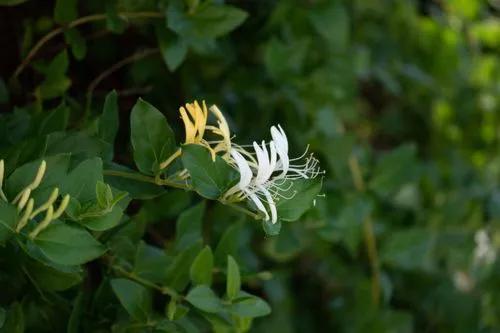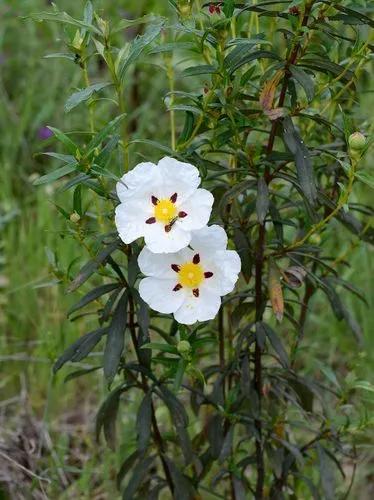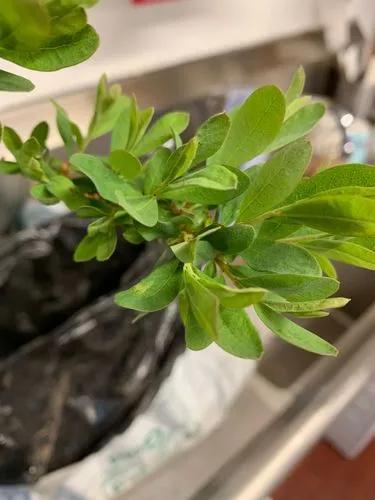Nandina domestica commonly known as nandina, heavenly bamboo or sacred bamboo, is a species of flowering plant in the family Berberidaceae, native to eastern Asia from the Himalayas to Japan. It is the only member of the monotypic genus Nandina.
Sacred bamboo Care
Nandina domestica
Other names: Heavenly Bamboo



Nandina domestica is widely grown in gardens as an ornamental plant since it has a number of cultivars that display bright-red fall foliage in the cool months with attractive new foliage growth in spring. Nandina is derived from the Japanese name, nanten. Domestica means 'domesticated', or 'of the household'. Despite the common name, it is not a bamboo but an erect evergreen shrub up to 2 m (7 ft) tall by 1.5 m (5 ft) wide, with numerous, usually unbranched stems growing from ground level. The glossy leaves are sometimes deciduous in colder areas, 50–100 cm (20–39 in) long, bi- to tri-pinnately compound, with the individual leaflets 4–11 cm (2–4 in) long and 1.5–3 cm broad. The young leaves in spring are brightly coloured pink to red before turning green; old leaves turn red or purple again before falling.
How to Care for the Plant

Water

During its first growing season, water a heavenly bamboo deeply and regularly to establish an extensive root system. Ensure the soil is kept consistently moist but never waterlogged.

Pruning

Heavenly bamboo does best when it is allowed to grow in its natural form rather than being heavily pruned or sheared as a formal hedge. However, lightly pruning the canes of a heavenly bamboo plant once per year will help to keep it looking full. Prune the canes to varying heights for the best results.

Fertilizer

Regular fertilizing helps to encourage blooming and preserve a heavenly bamboo vibrant color. Apply a fertilizer designed for ornamental shrubs twice a year in the early spring and early summer for the best results.

Sunlight

Avoid direct sun exposure.

Soil

Loam soil contains a nice balance of silt, sand, and clay along with hummus.

Temperature

Nandina can take heat and cold, from −10 to 110°F (−23 to 43°C). The plant can survive freezing temperatures for a short period of time.

Container

Plants that don't like a lot of moisture will need a drainage hole for moisture to escape and for airflow to circulate through the pot. Another important function of drainage holes is to allow water to flush the soil of excess salts from fertilizers.

Additional

Heavenly bamboo can easily be overwintered indoors to protect it from freezing temperatures.

Popularity

7,553 people already have this plant 994 people have added this plant to their wishlists
Discover more plants with the list below
Popular articles






